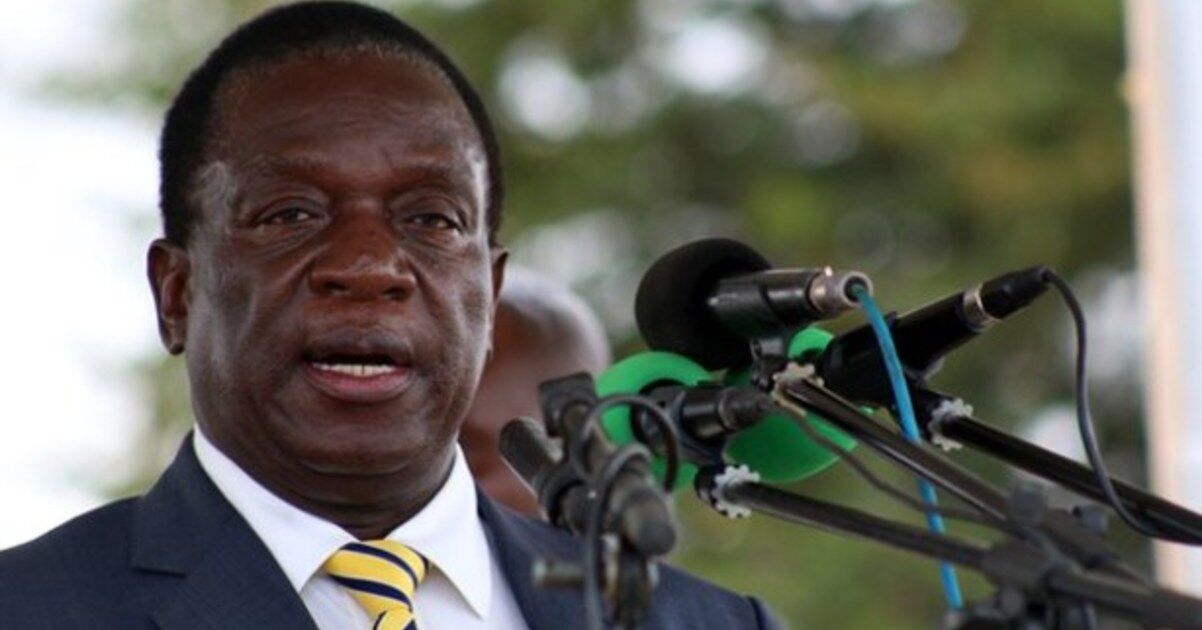LGBTQ rights won’t be coming to Zimbabwe anytime soon.
Interim President Emmerson Mnangagwa, who took power after the ouster of Robert Mugabe in November, told CNN that it is “not [his] duty” to overturn imperious laws targeting the country’s queer and transgender population.
“Those people who want it are the people who should canvass for it, but it’s not my duty to campaign for this,” Mnangagwa told interviewer Richard Quest, who is openly gay, in a Wednesday sit down. “In our constitution, [homosexuality] is bannedand it is my duty to obey my constitution.”
Zimbabwe has on the books some of the world’s harshest and sweeping statues when it comes to the criminalization of homosexuality.
The Zimbabwe Criminal Code bans “unlawful and intentional sexual relations… between two human males,” a vestige of sodomy prohibitions under colonial rule. Most recently, those codes were overhauled in 2006 with an updated law forbidding “sexual deviancy.” It’s now illegal for two people of the same sex to kiss, hold hands, or even hug in public.
If that weren’t enough, the Parliament also passed The Censorship and Entertainments Control Act in 1967, which outlaws the distribution of material deemed “indecent,” “obscene,” “offensive,” “harmful to public morals,” or “likely to be contrary to public health.”
That law doesn’t specifically mention the LGBTQ community but has often been used to restrict local advocacy, similar to Russia’s anti-gay “propaganda” law.
Human rights advocates hoped Mugabe’s removal from office following a military coup would signal a reversal in the federal government’s persecution of queer and trans people. The former dictator, who held on to power for more than three decades, opposed the very existence of LGBTQ people.
The 93-year-old once referred to queer and trans individuals as worse than “pigs” and “dogs,” saying that at least animals “know who to mate with.” He has also called homosexuality a “white disease” that “destroys nations” and “seeks to destroy our lineage.”
Mugabe also advocated for castrating and beheading LGBTQ people.
But Mnangagwa’s background signals he’s not the reformer advocates were hoping for. A close ally of Mugabe’s, he served in various roles in the deposed dictator’s administration since he took power in the early 1980s. The 75-year-old was a cabinet minister and chief lieutenant to Mugabe, later appointed to be his first-ever vice president in 2014.
During his three-year tenure as Zimbabwe’s second-in-command, Mnangagwa told the United Nations Human Rights Council Working Group in 2016 the country would not accept any U.N. recommendations calling for the legalization of homosexuality.
“With regards to areas that we felt we would not accept, it is issues of gays and homosexuality, which is unlawful in our country,” he claimed at the time. “We rejected all those. There are a few countries from Europe which recommended we reconsider our position with regard to adults of the same sex marrying each other that we rejected.”
Mnangagwa asserted that Zimbabwe would continue to “reject attempts to prescribe ‘new rights’ that are contrary to our norms, values, traditions, and beliefs.”
Don't forget to share:
Help make sure LGBTQ+ stories are being told...
We can't rely on mainstream media to tell our stories. That's why we don't lock our articles behind a paywall. Will you support our mission with a contribution today?
Cancel anytime · Proudly LGBTQ+ owned and operated
Read More in Impact
The Latest on INTO
Subscribe to get a twice-weekly dose of queer news, updates, and insights from the INTO team.
in Your Inbox













